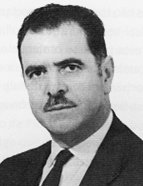

As a teacher he was one of those responsible for the emancipation of Contemporary History from Modern History, guaranteeing its inclusion in the course programme of the undergraduate degree in History as an autonomous course. His pedagogic and didactic sensitivity could be seen in many initiatives that set a trend: the creation of study guides for Portuguese contemporary history – for example his work Época Contemporânea Portuguesa. Onde o Portugal velho acaba (The Portuguese Contemporary Age. Where the old Portugal ends, 1981); assessment tests with consultation ensuring that the students’ reading of works and their respective reading notes could be used when answering the questions he set and which naturally favoured criticism and the construction by students of an autonomous and well-founded text; the encouragement to do research works, which could increase the value of the final grade by adding marks to the grade obtained in the test; a concern with preparing his successors, attending classes given by his assistant and later analysing them, commenting, suggesting other paths or other readings until he felt he could “kill the father” (an expression he used to indicate the end of this preparation phase or traineeship).
His constant preoccupation with understanding the meaning of History and the place we occupy in it led him to introduce some innovations into the university context whenever he was allowed to, especially in his Seminars of Contemporary History (where undergraduates’ final dissertations were prepared) in which he gave time to recent topics, for example decolonisation, or lent scientific and methodological consistency to topics which were not given much space in the taught courses of a more general nature, for example the workers’ movement. With his permanent leaning towards didactics and sharing, he sought to systematise some of these collective reflections in works he has left us – A História em Discussão (History in Discussion, 1975), Repensar Portugal. Reflexões sobre o colonialismo e descolonização (Rethinking Portugal. Reflections on Colonialism and Decolonisation, 1977) or Roteiro da Imprensa Operária e Sindical 1836-1986 (Guide to the Workers’ and Trade Union Press 1836-1986, 1991). However, one of the best examples of his sense of sharing is the work he prepared with Fernanda Ribeiro – O Liberalismo Português (1820-1852). Recolha bibliográfica (Portuguese Liberalism (1820-1852). A bibliographic collection) – published in 1994 in which he left us 2,220 references, the fruit of his scientific and thematic data collection.
These aspects show the importance he gave to research in academia and made him responsible for setting up a Centre for Historical Research – the Centre for History at the University of Porto (1976) – where he collected a specialist library and which supported many works, in particular doctoral theses, and masters and undergraduate dissertations. Here he set up a Line of Action for the Contemporary Era where, as he stated, “not in the shadow of traditional historiography, but in the light of new problematics and new sources” he sought to encourage and lead research in five axes: “triumph of capitalism and bourgeois society in Portugal”; “importance of the colonial factor in the conditioning of the economic, political, social and cultural evolution of Portuguese society”; “intensification of Portuguese colonial exploitation in Africa, industrialisation in the metropole and worker concentration”; “Portugal and the Spanish Civil War, the Second World War and the Cold War”; “the 25th April as a break point in the Portuguese historical process”.
